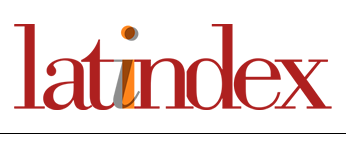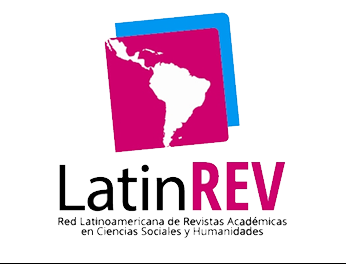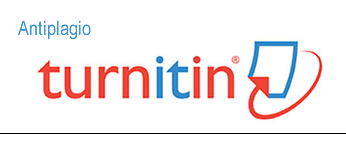Actitud, autoeficacia y ansiedad matemática en estudiantes de colegios españoles: un estudio comparativo
Resumen
Las matemáticas constituyen un pilar fundamental para el desarrollo personal y profesional, siendo una herramienta útil y necesaria para desenvolverse en forma adecuada en la sociedad. Este estudio buscó determinar si existe diferencia en la actitud, autoeficacia y ansiedad matemática según el sexo, la práctica musical y la cantidad de suspensos en matemática en estudiantes de educación secundaria de España. La investigación fue cuantitativa, descriptiva y comparativa. Participaron 263 estudiantes, quienes completaron el Cuestionario de Actitud hacia las Matemáticas (ATMI-SF), la Escala de Fuentes de Autoeficacia en Matemática (EFAM) y la Escala de Ansiedad Matemática (EAM). Los resultados mostraron diferencia significativa de actitud, autoeficacia y ansiedad matemática según el sexo, con mayor puntuación de las dos primeras en los hombres y la última en las mujeres. De igual manera, quienes ejecutan un instrumento musical mostraron mejor actitud y mayor autoeficacia matemática con respecto a quienes no lo hacen; en estos últimos se evidenció mayor nivel de ansiedad matemática que en los primeros. Similar fue el resultado obtenido en relación con la cantidad de suspensos en matemática; a mayor cantidad de suspensos, menor actitud y autoeficacia, y mayor nivel de ansiedad matemática. Estos resultados, evidencian la importancia de realizar intervenciones educativas que aborden las problemáticas observadas en estos constructos a fin de mejorar el desempeño de los estudiantes en la disciplina.
Descargas
Citas
Agüero Calvo, E., Meza Cascante, L. G., Suárez Valdés-Ayala, Z. y Schmidt Quesada, S. (2017). Estudio de la ansiedad matemática en la educación media costarricense. Revista Electrónica de Investigación Educativa, 19(1), 35-45. https://doi.org/10.24320/redie.2017.19.1.849 DOI: https://doi.org/10.24320/redie.2017.19.1.849
Aiken, L. R. (1970). Attitudes toward mathematics. Review of Educational Research, 40(4), 551-596. https://doi.org/10.3102/00346543040004551 DOI: https://doi.org/10.3102/00346543040004551
Antonio, M. J. G. (2023). Mathematics anxiety of mathematics students: A comparative study based on sex, year-level, age, and socio-economic status. International Journal of Research Publication and Reviews, 4(8), 1114-1122. https://doi.org/10.55248/gengpi.4.823.50544 DOI: https://doi.org/10.55248/gengpi.4.823.50544
Auzmendi Escribano, E. (1992). Las actitudes hacia la matemática-estadística en las enseñanzas medias y universitaria: características y medición. Mensajero.
Baker, D., Hallam, S. y Rogers, K. (2023). Does learning to play an instrument have an impact on change in attainment from age 11 to 16? British Journal of Music Education, 40(3), 297-310. https://doi.org/10.1017/S0265051723000116 DOI: https://doi.org/10.1017/S0265051723000116
Bandura, A. (1997). Self-efficacy: The exercise of control. W.H. Freeman and Company.
Caballero Carrasco, A., Blanco Nieto, L. J. y Guerrero Barona, E. (2008). El dominio afectivo en futuros maestros de matemáticas en la universidad de Extremadura. Paradigma, 29(2), 157-171. https://revistaparadigma.com.br/index.php/paradigma/article/view/418
Campayo Muñoz, E. A. y Cabedo Mas, A. (2016). Música y competencias emocionales: posibles implicaciones para la mejora de la educación musical. RECIEM, 13, 124-139. https://doi.org/10.5209/RECIEM.51864 DOI: https://doi.org/10.5209/RECIEM.51864
Costado Dios, M. T. y Piñero Charlo, J. C. (2024). Mathematical anxiety among primary education degree students in the post-pandemic era: A case study. Education Sciences, 14(2), Artículo 171. https://doi.org/10.3390/educsci14020171 DOI: https://doi.org/10.3390/educsci14020171
Else-Quest, N. M., Hyde, J. S. y Linn, M. C. (2010). Cross-national patterns of gender differences in mathematics: A meta-analysis of 287 studies. Psychological Bulletin, 136(1), 103-127. https://doi.org/10.1037/a0018053 DOI: https://doi.org/10.1037/a0018053
Fan, X., Hambleton, R. K. y Zhang, M. (2019). Profiles of mathematics anxiety among 15-year-old students: A cross-cultural study using multi-group latent profile analysis. Frontiers in Psychology, 10, Artículo 1217. https://doi.org/10.3389/fpsyg.2019.01217 DOI: https://doi.org/10.3389/fpsyg.2019.01217
Fennema, E. y Sherman J. (1976). Fennema-Sherman mathematics attitudes scales: Instruments designed to measure attitudes toward the learning of mathematics by females and males. Journal for Research in Mathematics Education, 7(5), 324-326. https://doi.org/10.2307/748467 DOI: https://doi.org/10.5951/jresematheduc.7.5.0324
Flores López, W. O. y Auzmendi Escribano, E. (2018). Actitudes hacia las matemáticas en la enseñanza universitaria y su relación con las variables género y etnia. Profesorado, Revista de Currículum y Formación del Profesorado, 22(3), 231-251. https://doi.org/10.30827/profesorado.v22i3.8000 DOI: https://doi.org/10.30827/profesorado.v22i3.8000
Ganley, C. M. y Lubienski, S. T. (2016). Mathematics confidence, interest, and performance: Examining gender patterns and reciprocal relations. Learning and Individual Differences, 47, 182-193. https://doi.org/10.1016/j.lindif.2016.01.002 DOI: https://doi.org/10.1016/j.lindif.2016.01.002
García Soto, Y. L., Flores López, W. O. y Olivar Molina, S. A. (2018). Competencias emocionales en la formación del profesorado de educación secundaria y su relación con las actitudes hacia las matemáticas. Revista Electrónica de Conocimientos, Saberes y Prácticas, 1(2), 11-32. https://doi.org/10.30698/recsp.v1i2.9 DOI: https://doi.org/10.30698/recsp.v1i2.9
Goetz, T., Bieg, M., Lüdtke, O., Pekrun, R. y Hall, N. C. (2013). Do girls really experience more anxiety in mathematics? Psychological Science, 24(10), 2079-2087. https://doi.org/10.1177/0956797613486989 DOI: https://doi.org/10.1177/0956797613486989
González Franco, V., González Lomelí, D. y Maytorena Noriega, M. de los A. (2022). Efecto de las fuentes de autoeficacia en matemáticas sobre la autovaloración en matemáticas. Psicumex, 12, Artículo e484. https://doi.org/10.36793/psicumex.v12i1.484 DOI: https://doi.org/10.36793/psicumex.v12i1.484
Hembree, R. (1990). The nature, effects, and relief of mathematics anxiety. Journal for Research in Mathematics Education, 21(1), 33-46. https://doi.org/10.5951/jresematheduc.21.1.0033 DOI: https://doi.org/10.5951/jresematheduc.21.1.0033
Karjanto, N. (2017). Attitude toward mathematics among the students at Nazarbayev University Foundation Year Programme. International Journal of Mathematical Education in Science and Technology, 48(6), 849-863. https://doi.org/10.1080/0020739X.2017.1285060 DOI: https://doi.org/10.1080/0020739X.2017.1285060
Lee, J. y Stankov, L. (Eds.). (2017). Non-cognitive psychological processes and academic achievement. Routledge. DOI: https://doi.org/10.4324/9781315640822
Linares Gómez, V. (2020). Efectos del uso de geometría dinámica sobre el aprendizaje y la actitud hacia las matemáticas. Revista Internacional de Estudios en Educación, 20(2), 78-93. https://doi.org/10.37354/riee.2020.203 DOI: https://doi.org/10.37354/riee.2020.203
Lindberg, S. M., Hyde, J. S., Petersen, J. L. y Linn, M. C. (2010). New trends in gender and mathematics performance: A meta-analysis of national achievement surveys. Psychological Bulletin, 136(6), 1123-1135. https://doi.org/10.1037/a0021276 DOI: https://doi.org/10.1037/a0021276
Mego-Sanchez, C., Huaman-Sarmiento, L., Iraola-Real, I. e Iraola-Arroyo, A. (2020). Niveles de autoeficacia matemática en estudiantes mujeres y varones aspirantes a la carrera de ingeniería. RISTI, Revista Ibérica de Sistemas e Tecnologias de Informação, 38, 142-155. https://www.risti.xyz/issues/ristie38.pdf
Mutohir, T. C., Lowrie, T. y Patahuddin, S. M. (2018). The development of a student survey on attitudes towards mathematics teaching-learning processes. Journal on Mathematics Education, 9(1), 1-14. https://files.eric.ed.gov/fulltext/EJ1173643.pdf DOI: https://doi.org/10.22342/jme.9.1.4193.1-14
Pajares, F. y Miller, M. D. (1995). Mathematics self-efficacy and mathematics performances: The need for specificity of assessment. Journal of Counseling Psychology, 42(2), 190-198. https://doi.org/10.1037/0022-0167.42.2.190 DOI: https://doi.org/10.1037//0022-0167.42.2.190
Pedrosa Jesús, C. (2020). Actitudes hacia las matemáticas en estudiantes universitarios [Tesis doctoral, Universidad de Córdoba]. Repositorio Institucional. https://helvia.uco.es/xmlui/handle/10396/20175
Rauscher, F. H. y Hinton, S. C. (2011). Music instruction and its diverse extra-musical benefits. Music Perception, 29(2), 215-226. https://doi.org/10.1525/mp.2011.29.2.215 DOI: https://doi.org/10.1525/mp.2011.29.2.215
Recber, S., Isiksal, M. y Koç, Y. (2018). Investigating self-efficacy, anxiety, attitudes and mathematics achievement regarding gender and school type. Anales de Psicología, 34(1), 41-51. https://doi.org/10.6018/analesps.34.1.229571 DOI: https://doi.org/10.6018/analesps.34.1.229571
Sánchez Mendías, J. (2013). Actitudes hacia las matemáticas de los futuros maestros de educación primaria. [Tesis doctoral, Universidad de Granada]. Repositorio Institucional. https://digibug.ugr.es/handle/10481/29827
Schellenberg, E. G. (2004). Music lessons enhance IQ. Psychological Science, 15(8), 511-514. https://doi.org/10.1111/j.0956-7976.2004.00711.x DOI: https://doi.org/10.1111/j.0956-7976.2004.00711.x
Spelke, E. S. (2005). Sex differences in intrinsic aptitude for mathematics and science? A critical review. American Psychologist, 60(9), 950. https://doi.org/10.1037/0003-066X.60.9.950 DOI: https://doi.org/10.1037/0003-066X.60.9.950
Steele, C. M. (1997). A threat in the air: How stereotypes shape intellectual identity and performance. American Psychologist, 52(6), 613-629. https://doi.org/10.1037/0003-066X.52.6.613 DOI: https://doi.org/10.1037//0003-066X.52.6.613
Tapia, M. y Marsh II, G. E. (2004). An instrument to measure mathematics attitudes. Academic Exchange Quarterly, 8(2), 16-21. https://www.rapidintellect.com/AEQweb/cho25344l.htm
Ursini, S. y Sánchez, G. (2008). Gender, technology and attitude towards mathematics: A comparative longitudinal study with Mexican students. ZDM Mathematics Education, 40(4), 559–577. https://doi.org/10.1007/s11858-008-0120-1 DOI: https://doi.org/10.1007/s11858-008-0120-1
Usher, E. L. y Pajares, F. (2009). Sources of self-efficacy in mathematics: A validation study. Contemporary Educational Psychology, 34(1), 89-101. https://doi.org/10.1016/j.cedpsych.2008.09.002 DOI: https://doi.org/10.1016/j.cedpsych.2008.09.002
Velázquez-Rosado, W., Villafañe-Cepeda, W., Vega-Vilca, J. C. y Nieves-González, A. (2021). Actitud hacia la matemática de estudiantes en el curso Métodos Cuantitativos para Administración de Empresas. Fórum Empresarial, 26(1), 67-98. https://doi.org/10.33801/fe.v26i1.19493 DOI: https://doi.org/10.33801/fe.v26i1.19493
Villamizar Acevedo, G., Araujo Arenas, T. Y. y Trujillo Calderón, W. J. (2020). Relación entre ansiedad matemática y rendimiento académico en matemáticas en estudiantes de secundaria. Ciencias Psicológicas, 14(1), Artículo e-2174. https://doi.org/10.22235/cp.v14i1.2174 DOI: https://doi.org/10.22235/cp.v14i1.2174
Zalazar Jaime, M. F., Aparicio, M. M. D., Ramírez Flores, C. M. y Garrido, S. J. (2011). Estudios preliminares de adaptación de la escala de fuentes de autoeficacia para matemáticas. Revista Argentina de Ciencias del Comportamiento, 3(2), 1-6. https://doi.org/10.32348/1852.4206.v3.n2.5222 DOI: https://doi.org/10.32348/1852.4206.v3.n2.5222
Zamora-Araya, J. A., Cruz-Quesada, J. D. y Amador-Montes, M. S. (2020). La autoeficacia y su relación con el rendimiento académico en estudiantes de enseñanza de la matemática. Innovaciones Educativas, 22(32), 137-150. https://doi.org/10.22458/ie.v22i32.2818 DOI: https://doi.org/10.22458/ie.v22i32.2818











